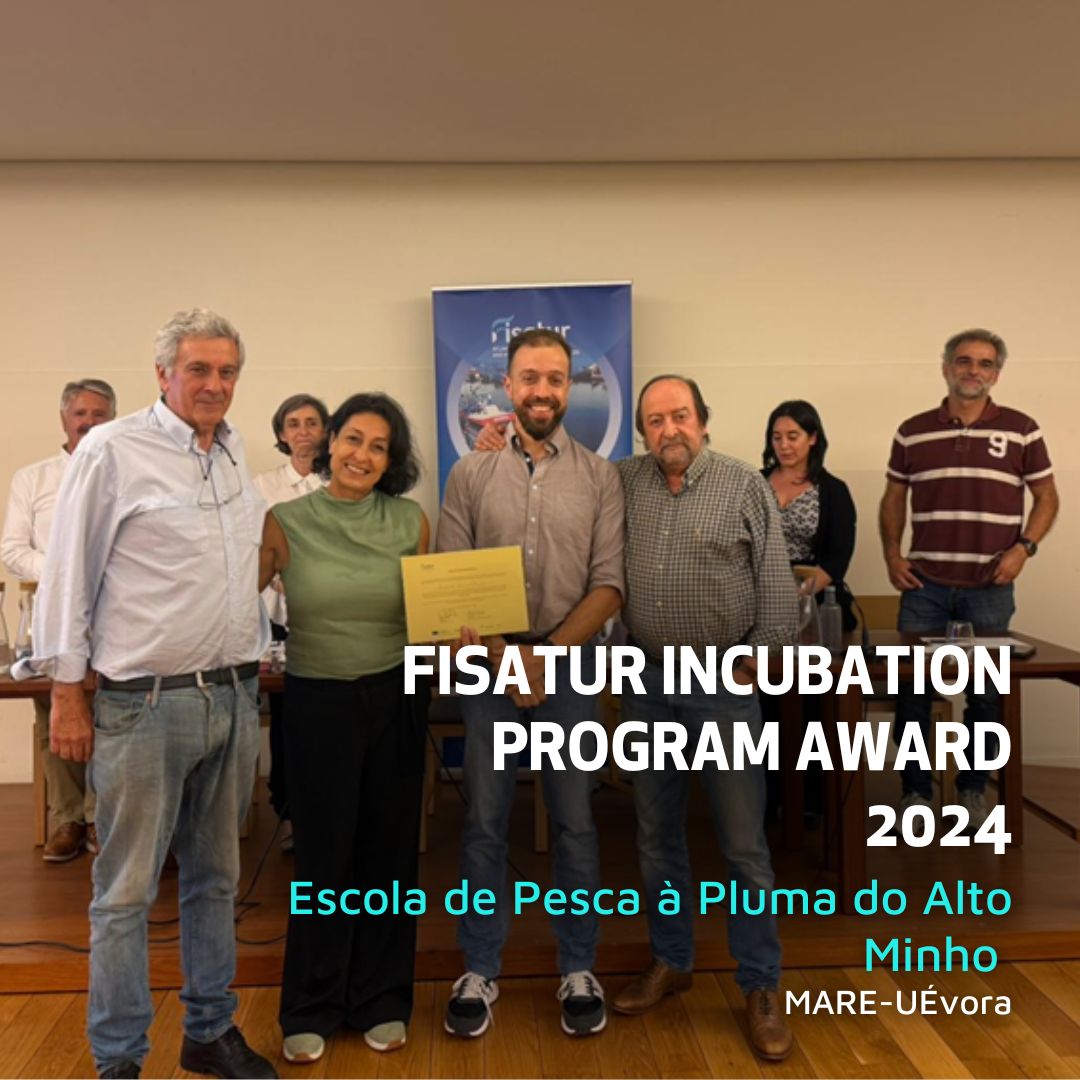Alto Minho Fishing School wins FISATUR award
The “Alto Minho Plume Fishing School” initiative, promoted by the AGNATHA Rio Minho association and with the scientific support of MARE, ARNET - Aquatic Research Network and the University of Évora, was awarded first prize in the FISATUR Incubation Program on May 29. 
This program, implemented in Portugal by the Polytechnic Institute of Viana do Castelo, includes partners from France, Spain and Portugal and aims to create networks of tourism experiences across the Atlantic to promote nature tourism, fishing and maritime cultural heritage.
For six months, this incubation program contributed to the growth of the projects involved, through mentoring sessions and support in key areas such as market research, marketing and communication. According to Carlos Alexandre, a researcher at MARE, at the University of Évora, and responsible for the scientific component of this initiative, “the support of the FISATUR incubation program was fundamental so that we could complement the knowledge we already have about recreational fishing and the management of natural resources, with new skills that are essential to the development of a real nature tourism business.”
The Alto Minho Plume Fishing School not only aims to teach those interested in fishing with this technique, but also includes a component dedicated to the study and knowledge of ecosystems and target species, in an attempt to promote the true spirit of deathless plume fishing among the younger generations, based on the protection of these ecosystems and their fish species.
“This is a good example of how academia, represented here by MARE, ARNET and the University of Évora, in addition to producing scientific knowledge and supporting the development of public policies in the area of the environment, can also contribute to the development of social, cultural and economic activities that aim to sustainably value these natural resources,” said Carlos Alexandre, adding that ”this award is not the culmination of this initiative, it is just the initial incentive for us to truly implement it in the Alto Minho region.”
Written by Patrícia Carvalho
